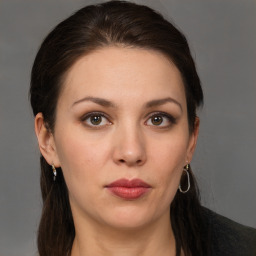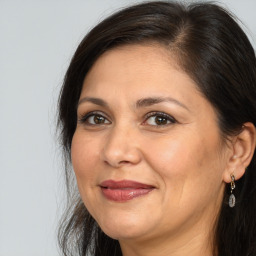Introduction
Management and leadership both the styles are essential for an individual to acquire for the purpose of managing diversified and complex work processes (Spillane, 2012). Thus, for such purpose, present study has been made with an attempt to explain different theories and styles of management which organizations use in different areas. Furthermore, leaders are required to develop a range of skills and abilities so that followers can be directed to manage the work towards goals and objectives.
Organizational structure and culture both are imperative aspects which even changes the business scenario. With the help of SWOT analysis, researcher has evaluated own skills and competencies; further on that basis personal development plan has been made. Lastly, a series of objectives have been discussed based on SMART criteria and along with that, motivating and team management skills are also discussed. On the basis of entire evaluation, several improvements have been suggested for the personal development plan.
Task 1
1.1 Different Management Styles
The art of getting things done through others can bring successful outcomes to the managers, if things are managed as per effectual management styles. Management styles plays crucial role in underpinning the bond amongst the employees. Here in the below section, several styles of management have been discussed that aids different organizations to manage work processes in efficient manner:
Scientific Management Approach
This is one of the most effective and important parts of management approach which is being presented by the Fredrick Taylor's scientific theory. Frederick Taylor's theory of scientific management presented various techniques or ways through which they are able to improve the efficiency of the work process. This theory represents beliefs in the possibility of a “best way†to undertake a job. It helps in identify one of the best possible way and using the most effective concept and way of motivation.
Bureaucracy Management Approach
It is considered as a most important form of organization by having clear rules and regulations which are strictly followed. According to Max weber Bureaucratic management approach the necessity of organizations to operate in rational way. There are mainly 6 principles presented by Max weber which is as follows:
- Proper division of labor
- Chain of Command
- Separation and promotion based on qualifications
- Application of consistent and complete rules
- Selection and promotion based on qualifications
All the above principles presents different features which needs to be present as there should be proper rules and regulations need to be run and it should be equally applicable on every member of organizations. Further, it can be stated that this type of management approach follows the principle of rationality and consistency.
The whole selection is based on upon technical qualification of a person. Managers using this approach follows equality as they mainly emphasis on rules and regulations of company. Some of the main characteristics of this approach are clear cut division of labor as well as impersonal behavior by officials as well as lifelong career is expected.
We tend to help you at every step regarding Academic Assistance
Get your Assignments Now!
Human Relation Management Approach
Elton Mayo is considered as the father of human relation theory. This theory came as a reaction to the classical approach and it is stressed on formal structure. However, human behavior carried out at the Hawthorne works of the general electric company in Chicago. After this, he founds that total work satisfaction depends on the informal social pattern of the work group.
People will usually form a work groups through the feeling of importance as well as physical condition. It had given a little motivation and can be used by management to benefit the organization. Here, the major attention given on the social factors at work rather than purely rational organization.
Directive Style
Directive style is all about giving directions to the employees so that immediate compliance of rules and regulations can take place (Alvesson, 2012). The manager is entirely liable to give directions to all the employees and under the style, manager usually motivates by threats and discipline. The style is effective in the period of crisis and it is not effective when employees are under developed.
Authoritative Style
The style has a prime objective of providing long term direction and vision for the employees. Employees in this style are given with clear direction and they are also motivated by persuasion and feedback on task performance (Levine, 2010). The style is highly effective when clear directions and standards are required; moreover the manager should be incredible in nature.
Affiliative Style
Affiliative style has the primary objective of creating harmony among employees and between managers (Barnett and et. al., 2011). The manager generally keeps people happy by considering their interest. Furthermore, good relationships are developed among management and employees and this also aids in reducing the possibilities of conflicts.
Participative Style
This style is focused towards building of commitment and consensus among employees and manager often involves all the employees in decision making process. Reward system is another method through which employees are motivated. The style produces the best results when employees are ready to work together.
Pacesetting Style
Pacesetting style is concerned about accomplishing tasks to a high standard of excellence (Broadbent, 2013). The manager usually motivates employees by setting high standards. The style can produce optimum results if people are highly motivates and competent towards the job roles.
Coaching Style
This subsequent style has the primary objective of long term professional development of employees. The style usually assists and encourages employees to develop their strengths and improve their performance. Managers motivate people by providing opportunities for professional development (Gardner and et. al., 2010).
Examples: Apart from the generalized discussion on the styles, hotel Marriott International has been working as per Affiliative style which aids the manager to perform all the routine processes in effectual and competent manner. The possibilities of conflicts are fewer under the style; however employees at Marriott keep trying to motivate each other.
On the other hand, hotel Ritz Carlton has been following Pacesetting style where in manager make sure that each and every task is completed as per the determined standards. This helps the employees to deliver proper services to the clients (Crevani, Lindgren and Packendorff, 2010).
Furthermore, Tesco which is one of the largest retail entity has been following Coaching style of management where in the manager provides long term professional development of employees. Proper training and counseling sessions are organized for the employees so as to augment performance level (Spillane, 2012).
1.2 Discuss Leadership Characteristics
A leader is the one who lead his followers in an effective manner and inspire them to perform assigned job in the desired manner. Therefore, to be an effective leader in a hospitality industry a person should be equipped with following essential traits that are described as follows:
Ability To Delegate
Leader should possess ability to delegate jobs to the appropriate department for improving and gaining higher productivity of both employees and organization. Manager of Marriott should have the skills through which it can identify the potential of his team members and delegate the tasks accordingly (Dugan, 2011). This ability of the leader can be proven as strength of the group and increase trust and support among all of them.
Communication
In order to create productive work environment in hospitality industry, manager should have good and effective communication skills. Through these characteristics, he can motivate his staff members and influence them to perform the activity in the desired way (Gardner and et. al., 2010). Effective communication may lead to build supportive culture and reduce the grievances among the workforce which will result in lower employee turnover.
Positive Attitude
The manager of Marriott should possess positive attitude towards all the situations so that he can create positive impact on his followers. Positive attitude of the manager can provide strength to the organization to address many threats and challenges and helps in building an effective team to deal with the same (Dugan, 2011).
Analytical Skills
Leader of the company should have good analytical skill so that he can analyze all the aspects of the situation and can find the best solution for the particular problem. Marriott is the leading company in hotel industry in the UK and to maintain this position, manager of the firm should possess good analytical skills so that he can analyze different market situations and can form sound decisions to address the situation in the most effective manner (Hartnell, Ou and Kinicki, 2011). In order to make the enterprise more compatible, various tools and techniques are used to audit the environment. For this, manager should use his analytical skills to draw suitable conclusion out of the environmental audit.
Good Communication
It is one the most important characteristics of good leadership. With the help of efficient communication, a good leader can motivate workers towards business goals and objective with an appropriate manner. It plays significant role in order to get loyalty of staff for long duration.There are different leadership styles on the basis of which leader perform all the duties and responsibilities (Komives, 2011). All such styles are mentioned in the below section:
- Autocratic: In autocratic style of leadership, leader gives directions to the employees and no one challenges the decisions of autocratic leaders. Close supervision can be facilitated through the style.
- Democratic: Democratic style is the one where in leader takes opinion from the employees and the style also gives several rights to the employees (Levine, 2010).
- Transactional: As per the leadership style, leader rewards those people who perform well and in case of ineffective performance, punishment is provided to the team members.
- Transformational: Leaders following this style motivate employees and enhance productivity and efficiency through communication and high visibility.
- Lassiez Faire: In such style, leader lacks direct supervision and he can transfer the authorities to the respective subordinates. Sometimes, it leads to poor production due to lack of control
1.3 Evaluate Communication Process
- Sender: First of all, sender generates the ideas which have to be communicated to others. In this phase, information is in the intangible form which cannot be visible to another person. In short, sender is the person who conveys the information to others with the help of various communication modes (Schein, 2010).
- Encoding: After that, sender encodes that intangible information in the tangible message by using symbols, letters and words. The person formulates the information into the coded word which can be understood by the receiver in the same sense as he wants.
- Communication Modes: Afterwards, sender will select an appropriate mode to communicate with the receivers. In the context of Marriott, if top management wants to convey information to all of the organizational members, then they will use mechanical media whereas if manager of one department wants to communicate with other department, he can conduct meetings for that (Selznick, 2011).
- Decoding: When message is sent to the receivers, then the information is decoded by the finder. Decoding process includes conversion of the message into the language so that information can be understood by him in same way as it conveys.
- Feedback: When the decoding process gets completed, receiver replies to the sender regarding the message and in this way, communication process get finished between both sender and receiver.
1.4 Organizational Culture And Change
Organization culture is concerned with the combination of assumptions, values and beliefs which directs the behavior of a member with the others within the office premises. Basically, four types of organizational culture are there named as Clan, Adhocracy, Hierarchy and Market culture. Organizational culture always brings change in the business entity and it also produces negative as well as positive impacts on employee behavior (Spillane, 2012).
At Marriott hotel, managers have been following clan culture where in employees are allowed to present their advices in decision making process. It is considered as most effective ways through which all their workers feels motivated and perform all their tasks appropriately. In this regards, it can be determine that organization culture clearly highlights the clients oriented services that depends more on people than the policies. Different employees belong to different culture worldwide and it is highly difficult to fulfill all consumers' requirements.
Hence, culture can change the whole working criteria of business due to the different ideas. Clan culture is effective enough to develop proper communication among the employees. Culture changes the motivation level and mindset of people which further leads changes in employee behavior and ultimately it brings overall transformations in hotel's business practices.
Due to this culture, various employees of hotel highly focused with the team work. It develops the collaborative practices in which managers use to maintain positive relationship with their co-workers. It helps them in providing quality customer services and enhancing their profit margin.
Furthermore, through such kind of culture, Marriott can increase worker's job satisfaction and reduce the employee turnover. Workforce of the organization will be motivated and highly focused to attain the predetermined goals and in this way, the firm can achieve its aim and objectives effectively and efficiently (Razzi, 2014).
View Samples on coursework, essay, and dissertation
Free Samples
Task 2
2.1 Develop Smart Objectives For Career Development
Specific: In order to become manager at the hotel, I must develop managerial skills to manage things in adequate way.
Measurable: My ability can be measured with the help of acquiring feedback and appreciation from the team members.
Achievable: I must focus on specific area so that on such basis, qualifications can be enhanced.
Realistic: I wish to manage a team of 50 in the hotel.
Time bound: I could assume the objectives to be achieved within the period of 8 months when I will handle different projects.
2.2 Personal Reflection
How You Lead And Motivated The Team Throughout The Day
As a manager, I performed all my roles and duties in adequate manner and in order to manage team in properly, I made use of Participative style where in I consulted each and every team member to contribute in decision making process. This assisted me to encourage human motivation and this also ensures higher productivity.
I made use of participative style in positive way; however apart from that I also made it sure that team members are working in disciplinary manner. Further, to motivate the employees in optimistic manner, I encouraged them to accelerate productivity level for rewards and recognition aspects.
Did You Achieve Your Goals
When I was allotted the responsibility to become manager, I determined several goals and objectives based as per my job roles and authorizes. I wanted to get proper support from the team members so that we can submit projects on time.
I can say that due to adoption of participative style, I have reached towards the determined goal. Furthermore, I wanted to reduce demoralization among the employees and for that I took personal sessions with them. This also assisted me to identify the areas that demotivate the employees.
What Managerial Actions You Need To Take To Achieve The Objectives
In order to reach towards the goals and objectives, I considered employee interest firstly in all the areas so that I could derive support in consistent manner. I delegated duties and responsibilities in proper manner by considering the skills and abilities of employees. Furthermore, I gave directions to all the employees regarding their job roles which reduce the opportunity of confusions.
We Provide Complete Proofreading Service For All Types of Work.
Recommendations For Improvements
Though, I have managed things in prominent manner; however I should make varied improvements in my performance so that I can get more success and growth opportunities. These are the areas where I should improve:
- When I was at the position of manager, I did not communicate frequently with the team members; thus I need to emphasize on frequent communication so that I could get knowledge about each and every aspect of the organization.
- I should use organizational resources in optimum manner with minimum or zero wastage.
- I should focus on quality aspects so that proper services can be delivered to the customers.
References
- Alvesson, M., 2012. Understanding organizational culture. Sage.
- Barnett, G. A. and et. al., 2011. Citations among communication journals and other disciplines: a network analysis. Scientometrics.
- Broadbent, D. E., 2013. Perception and communication. Elsevier.
- Crevani, L., Lindgren, M. and Packendorff, J., 2010. Leadership, not leaders: On the study of leadership as practices and interactions. Scandinavian Journal of Management.
- Dugan, J. P., 2011. Research on college student leadership development. The handbook for student leadership development.
- Gardner, W. L. and et. al., 2010. Scholarly leadership of the study of leadership: A review of The Leadership Quarterly's second decade, 2000-2009. The Leadership Quarterly.
- Hartnell, C. A., Ou, A. Y. and Kinicki, A., 2011. Organizational culture and organizational effectiveness: a meta-analytic investigation of the competing values framework's theoretical suppositions. Journal of Applied Psychology.
- Komives, S. R., 2011. Advancing leadership education. The handbook for student leadership development.













